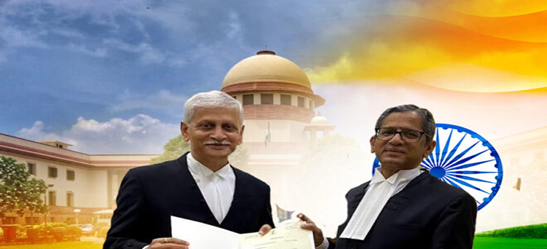India’s 49th Chief Justice of India
Context
Recently, Justice Uday Umesh Lalit, sworn in as the 49th Chief Justice of India, will demit office on November 8 with a tenure of 74 days.
Who can become the Chief Justice of India?
- Apart from being an Indian citizen, the person must-
- have been for at least five years a Judge of a High Court or of two or more such Courts in succession
- have been for at least ten years an advocate of a High Court or of two or more such Courts in succession
- be, in the opinion of the President, a distinguished jurist.
Who appoints the CJI?
- The Chief Justice of India and the other judges of the Supreme Court are appointed by the President under clause (2) of Article 124 of the Indian Constitution.
- It is mentioned in Article 124 that appointment by the President is to be done “after consultation” with judges of the Supreme Court, as the President may “deem necessary”.
- Article 217, which deals with the appointment of High Court judges, says the President should consult the CJI, Governor, and Chief Justice of the High Court concerned.
Tenure
- The tenure of a CJI is until they attain the age of 65 years, while High Court judges retire at 62 years.
How does the collegium system work?
- For appointing Chief Justice of India (CJI)
- The President of India appoints the CJI and the other SC judges.
- The outgoing CJI recommends his successor.
- In practice, it has been strictly by seniority ever since the supersession controversy of the 1970s.
- For appointing other SC Judges
- SC judges are recommended by a Collegium consisting of the CJI and 4 senior-most judges of SC.
- The Collegium recommends the candidate to the Law Minister, who forwards it to the Prime Minister who then advises the President for the final appointment.
- For appointing Chief Justice of High Courts
- President appoints CJ of HC in consultation with CJI (consults other SC collegium members) and governor of the respective state.
- The candidate is selected from outside the respective state.
- For appointing other HC judges
- HC judges are also appointed by the President who consults the HC Collegium (CJ of HC and 4 senior-most HC judges), CJI (consults other SC collegium members), and the Governor of the respective state.
- For appointing Judges of Common HC
- Judges of common HC are appointed by the President who consults CJI (consults other SC collegium members) and Governors of respective states.

